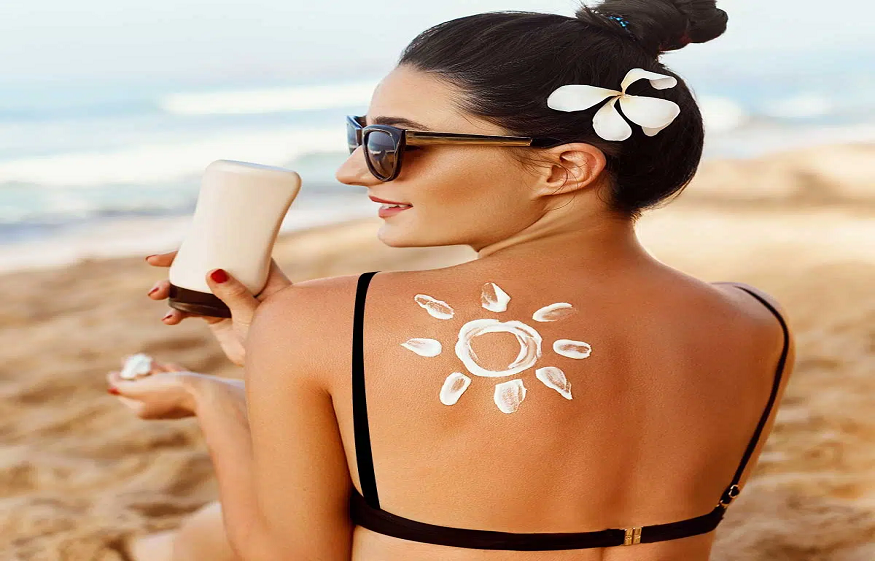Sun protection: the right gestures and golden rules
For optimal safety when tanning and to avoid sunburn, it is useful to know the risky situations and adopt good practices.
1. Protect your skin under the sun
To tan, prevent sunburn and premature skin aging, prevent the risk of cancer and preserve your sun capital, it is essential to choose suitable sun protection. Because, contrary to popular belief, sunburn is not trivial. They are a sign of excessive UV exposure causing skin lesions which can, in the long term, be the cause of skin cancer.
In summer, avoid exposure to the sun between 12 p.m. and 4 p.m. The sun’s rays are at their peak and therefore more dangerous. Never expose children under 3 to direct sunlight. Protect yourself and the little ones with a T-shirt, hat and sunglasses. T-shirts are not compulsory for adults. Choose an appropriate protection factor, depending on your skin type, sunlight and exposure conditions. Carefully read the instructions and the precautions for use of the sunscreen before using it for the first time. Apply the sunscreen before any exposure. The application must be uniform on all parts of the body and in sufficient quantity. Renew the application every two hours and after each swim, after drying with a towel or in the event of profuse perspiration. Drink plenty and often. Be wary of the weather, especially cloud cover: light or thin cloudiness attenuates the heat, but does not block UV radiation.
2. How to properly apply a sunscreen product?
Apply the product generously and evenly to all exposed areas, overlapping slightly under clothing or swimsuit. And this should be done preferably 15 to 30 minutes before exposure. The correct dose of product is 2 mg per cm2 of skin, ie one teaspoon for the face and 2 to 3 tablespoons for the whole body; regardless of the protection category of your sunscreen product. It is necessary to renew the application frequently, approximately every 2 hours, but also after sweating, swimming or wiping.
3. the right reflexes
Continue to use sunscreen even after you’ve tanned. Protect yourself when practicing outdoor sports activities. Prefer shade when possible. Be wary of UV, especially by the sea or in the mountains because of the reverberation. It accentuates the effect of UV rays by 50 to 80% on snow, by 20% on the sea, and by 5 to 20% on sand. You also have to be extra vigilant when there is wind or clouds, because if they don’t heat up, UV rays are present. It is therefore essential to protect yourself against it. Also be careful with medicines, deodorants and other perfumes. They can cause photosensitization reactions (pimples, blisters, etc.) after exposure to UV rays. It is advisable to seek advice from your doctor or pharmacist before leaving on vacation. Caution: The use of a sun protection product should not encourage excessive exposure to the sun.
The sun on tanned skin is just as dangerous. Sun protection is necessary throughout sun exposure.
4. Protect your skin after sun exposure and prolong your tan
In the evening, after any exposure, it is advisable to moisturize the skin well. Damaged by repeated bathing, the friction of the sand and the rays of the sun, the skin dries out and becomes fragile. It is therefore advisable to feed it and, in the event of sunburn, to relieve it. Appropriate care can restore suppleness and softness. In addition, good hydration is the secret to an intense and long-lasting tan.
5. After sun milk or daily moisturizer?
A daily moisturizer helps fight against dry skin. As for the after-sun milk, it has the same properties and can also be enriched with soothing active ingredients. It calms any burning sensations associated with sunburn and reduces feelings of tightness. The skin is repaired, hydrated and the tan optimized.

